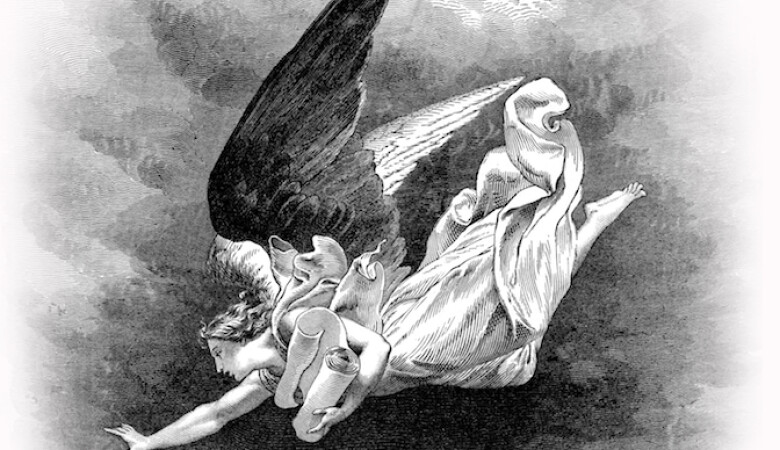Prepare Immediately for Christ’s Coming (Revelation Sermon 45 of 49)
April 29, 2018 | Andy Davis
Revelation 22:6-13
sermon transcript
Introduction
We are nearing the end of our study of the book of Revelation. Ordinarily, I preach through the text, and at the end draw out applications. But this sermon will be different, one filled with application of the entire book of Revelation, though not comprehensive.
We do not know everything that God wants us to do. There are many times in the Bible in which individuals were cut to the heart and came to the one proclaiming the Word, saying, “What must we do?” Many came to John the Baptist asking that question. He would answer appropriately for their office or station in life. People asked Peter the same question when he preached the Gospel to those who were in Jerusalem for the Feast of Pentecost. At that point, Christ had died and risen and ascended to Heaven, and the Holy Spirit had been poured out. Peter preached the Gospel boldly and clearly, that the ones listening were cut to the heart. The Philippian jailer asked the same question. As he drew Paul and Silas out of the Philippian jail, he fell down before them and asked, “What must I do to be saved?”
I want you to think about that as we come to the text today. In a few weeks, I will go over the entire book of Revelation, as I always do when I finish a book. Keep that question in mind. We are at the end of the book, the final chapter, the final verses. What shall we do? How shall we put into practice the things that we have learned?
The Book of Revelation Comes to a Close (vs. 6)
Our Response to the Vision of Heaven
Revelation 22:1-5, the verses immediately prior to our text today, provides a revelation, an unveiling, of the New Heaven, the New Earth, and the New Jerusalem: “Then the angel showed me the river of the water of life, as clear as crystal, flowing from the throne of God and of the Lamb down the middle of the great street of the city. On each side of the river stood the tree of life, bearing twelve crops of fruit, yielding its fruit every month. And the leaves of the tree are for the healing of the nations. No longer will there be any curse. The throne of God and of the Lamb will be in the city, and his servants will serve him. They will see his face, and his name will be on their foreheads. There will be no more night. They will not need the light of a lamp or the light of the sun, for the Lord God will give them light. And they will reign forever and ever.”
John has just received the most sublime vision any human being has ever had, a vision of the New Heaven and the New Earth and the radiant perfect city of God, the New Jerusalem. Now, John must return to planet Earth. The vision has ended and it is time for him to return in his mind to the rocky island of exile, the island of Patmos.
The sublime words that he has had poured into his soul by his angelic guide, through the Holy Spirit, must be lived out by faith. The final verses, Revelation 22:6-21, make up the epilogue, the final section of the final chapter of the final book of the Bible. As John returned to Patmos, so we return to our daily lives — jobs, families, challenges, medical issues, financial issues, wrestling with sin, commitment to evangelize, to reach out with the Gospel. We must return, and we must be changed. These words must burn in our hearts. The Bible must make an impact on us, and through us must make an impact on the world. We have traveled overwhelming ground, 21-plus chapters. John has given us a vision of things that are already presently going on in the heavenly realms, as well as a vision of the future. Many of the events outlined in Revelation are still in the future for us as they were in the future for John, but closer now.
With this final section, we have come full circle in Revelation. There are clear parallels between the verbiage in today’s passage and the beginning of the book. That is completely intentional. Compare Revelation 1:1: “The revelation of Jesus Christ, which God gave him to show his servants what must soon take place. God made it known by sending his angel”; and Revelation 22:6: “God sent his angel to show his servants the things that must soon take place.” They are almost exactly the same. Revelation 1:3 says, “Blessed is the one who reads the words of this prophecy, and blessed are those who hear it and take to heart what is written in it, because the time is near.” Revelation 22:7, 10 says, “Blessed is he who keeps the words of the prophecy in this book. …for the time is near.”
Revelation 1:8, 17 says, “‘I am the Alpha, and the Omega,’ says the Lord God. …the First and the Last.” Revelation 22:13 says, “I am the Alpha and the Omega, the First and the Last, the Beginning and the End.” In Revelation 1:9, 17, John writes, “I John… When I saw him, I fell at his feet as though dead.” Revelation 22:8 says, “I, John, am the one who heard and saw these things. And when I had heard and seen them, I fell down."
We have come full circle, back to where we started. God wants to press in on our hearts now the application of the things that we have learned. The question is: how, then, shall we live? Now that we have taken in all of this truth, how should it affect our lives? This closing section sums up how we should respond. We are not merely to be astounded, amazed, overwhelmed, befuddled, and then return to life as it was before. Still less are we supposed to shrug and act as though the words of Revelation are not significant. John did not make all of this up in his mind or have some weird dreams or hallucinations.
We must take this book as a revelation, an unveiling from Almighty God of something he wants us to see and know. Despite the powerfully symbolic nature of the words in this apocalyptic genre — writing that is so very difficult to understand and interpret — He wants us to take these words and draw them in. We are to take them as much as we can grammatically, historically, literally, to try to understand them and apply them. We are to apply what they say about what God is like right now and what His plans are for the future of the human race. The application comes down to these questions: What should we understand? What should we believe? Who should we be? What should we do? Understand, believe, be and do.
Trustworthy and True
The fundamental issue here is the words that we are reading. Revelation 22:6 says, “The angel said to me, ‘These words are trustworthy and true. The Lord, the God of the spirits of the prophets, sent his angel to show his servants the things that must soon take place.’” This is a book of predictions of the future. Only the God of the Bible can do this. No other religion makes these kinds of predictions. Only God can tell us the future. As we learned in Isaiah 46:9-10, “I am God, and there is no other; I am God, and there is none like me. I make known the end from the beginning, from ancient times, what is still to come. I say: My purpose will stand, and I will do all that I please."
The angel told John that the words of this book are trustworthy, and they are true. Trustworthy means if you base your life on these words, you will not be disappointed. They will not fail you. True means that in the end when we get to Heaven we will look back and see that all of the prophecies came true. God will let none of them fall to the ground, but will do everything that He has predicted that he would do.
When I think about the word trustworthy — as the word of God is trustworthy — I think about something I can put my weight on. Some time ago, I was reading the book, Kidnapped by Robert Louis Stevenson to Daphne. We tried to read the primary source, but could not get the Scottish burr down enough to be able to understand much. We were looking up Scottish words all the time. There is a critical scene early in the story, in which David Balfour, the main character, goes to ask his wicked uncle, who lives in a creepy old castle, to take him in because his parents have died. His uncle does not want to give him any of his fortune, so he has David ascend a spiral staircase in the tower of his castle. The uncle knows very well that one of the steps has been viciously altered so that it will give way when he puts his weight on it, which is exactly what happens. The step completely gives way and David starts to fall, but he saves himself by grabbing another stair at the last minute, hanging between heaven and earth, his life hanging in the balance, before managing to escape.
That is the opposite illustration of what I am talking about. The Word of God will not give way when we step out on it. These words are trustworthy. Jesus likened it to building a house on a rock. When the storms of life attack, it will be solid and secure. Everything built on this book of Revelation will be solid and secure. He mentions the words of Revelation again and again.
Revelation 21:5: “He who was seated on the throne said, ‘I am making everything new!’ Then he said, ‘Write this down, for these words are trustworthy and true.’” He wanted John to write down these words. Revelation 22:6: “The angel said to me, ‘These words are trustworthy and true.’” Revelation 22:7: “Behold, I am coming soon! Blessed is he who keeps the words of the prophecy in this book.”
Revelation 22:9-10: “But [the angel] said to me, ‘…I am a fellow servant with you and with your fellow prophets and with all who keep the words of this scroll. Worship God!’ Then he told me, ‘Do not seal up the words of the prophecy of this scroll, because the time is near.’” Revelation 22:18-19. “I warn everyone who hears the words of the prophecy of this scroll: If anyone adds anything to them, God will add to that person the plagues described in this scroll. And if anyone takes words away from this scroll of prophecy, God will take away from that person any share in the tree of life and in the Holy City, which are described in this scroll.” He is almost belaboring the point: The words in this book should be the focus of our attention. We should study them.
Not to be Disparaged or Ignored
This book must not be disparaged or ignored. Many scholars disparage it. They make light of it. Right up the road, there is a false teacher at UNC named Bart Ehrman. His express purpose, especially with evangelicals, is to destroy his students’ faith in the Bible. He does special work on the book of Revelation.
He says the book of Revelation belongs to an apocalyptic genre that was well known in first-century Judaism, in which the Jews were yearning for deliverance from the Roman oppression. They wrote these visionary books hoping that God would come down and intervene and throw off the yoke of the oppressor, which never happened. That is absolutely not true. Bart Ehrman actually said Jesus was an apocalypticist himself, one who indulges in this genre and makes predictions that do not come true. Jesus said this generation would not pass away before all of these things had taken place. Ehrman zeroes in saying even Jesus was wrong when he predicted the imminent destruction of Rome. Another unbelieving scholar said that the book of Revelation is a mess, disorganized. This is the kind of disparaging that we must not do. Christ gave these words to tell us, his servants, the things that must soon take place. There is no other book like it in the Bible.
Christ Is Coming Soon to End History (vs. 7, 13)
The Alpha and Omega Returns Soon
Revelation 22:7 says he coming soon to end history. “Look, I am coming soon! Blessed is he who keeps the words of the prophecy in this scroll.”
Right before he left, at the end of his first advent, his mission on earth, in Acts 1:7-11, they were curious and pressed Jesus, “‘Lord, are you at this time going to restore the kingdom to Israel?’ He said to them: ‘It is not for you to know the times or dates the Father has set by his own authority. But you will receive power when the Holy Spirit comes on you; and you will be my witnesses in Jerusalem, and in all Judea and Samaria, and to the ends of the earth.’ [That is the Great Commission. Our job is to take the Gospel to unbelievers.] After he said this, he was taken up before their very eyes, and a cloud hid him from their sight. They were looking intently up into the sky as he was going, when suddenly two men dressed in white stood beside them. ‘Men of Galilee,’ they said, ‘why do you stand here looking into the sky? This same Jesus, who has been taken from you into heaven, will come back in the same way you have seen him go into heaven.’” In Revelation, Jesus predicts that he will return soon. Revelation 22:13 says, “I am the Alpha and the Omega, the First and the Last, the Beginning and the End.” History will come to an end.
Sense of Urgency — How, Then, Shall We Live?
The early church had a sense of urgency about the imminent return of Christ. We see this repeatedly in the Epistles. In Philippians 3:20-21, Paul says, “… our citizenship is in heaven. And we eagerly await a Savior from there, the Lord Jesus Christ, who by the power that enables him to bring everything under his control, will transform our lowly bodies so that they will be like his glorious body.” We eagerly await the Second Coming of Christ. 1 Corinthians 1:7 says, “Therefore you do not lack any spiritual gift as you eagerly wait for our Lord Jesus Christ to be revealed.” Paul told Thessalonican believers that they are a model to believers everywhere. 1 Thessalonians 1:9-10 says, “…They tell how you turned to God from idols to serve the living and true God, and to wait for his Son from heaven, whom he raised from the dead — Jesus, who rescues us from the coming wrath.” We serve while we wait for Christ to return.
Jesus says he is coming soon. The word “soon” gives us a sense of urgency and expectancy. He does not look at time the way we do. With the Lord, a day is like a thousand years, a thousand years is like a day. He told a series of parables in Matthew 24 and 25 about our demeanor while we wait. Matthew 24:45-51 says, “Who then is the faithful and wise servant whom the master has put in charge of the servants in his household to give them their food at the proper time? It will be good for that servant whose master finds him doing so when he returns. I tell you the truth, he will put him in charge of all his possessions. But suppose that servant is wicked and says to himself, ‘My master is staying away a long time,’ and he then begins to beat his fellow servants and to eat and drink with drunkards. The master of that servant will come on a day when he does not expect him and at an hour he is not aware of. He will cut him to pieces and assign him a place with the hypocrites where there will be weeping and gnashing of teeth."
Another parable with almost the same lesson is the five wise and five foolish virgins. The foolish virgins were only partially prepared for the coming of the bridegroom, so they were excluded from the wedding. Jesus says at the end of that one, “Therefore keep watch, because you do not know the day or the hour.”
How do we live out this sense of urgency, knowing that Jesus is coming soon? In Revelation, God has given details of events that will occur before the Second Coming. None of those things has happened yet — the seven trumpet judgments, the seven bowl judgments, the Antichrist rising up to rule over the whole earth, the man of sin setting up the abomination of desolation. Putting all that together, we do not expect the imminent return of Christ yet. We must hold all of those things in tension, keeping in mind that we also do not know about our own future, what day we will die, when we will be called to give an account, like the wicked fool who greedily built bigger barns and died before he could use them.
If we do not know the length of our own days, we certainly cannot know the timing of the Second Coming of Christ. We must harmonize all the signs, but Jesus is saying, “I am coming soon. You do not know the day or the hour. You need to be vigilant, watchful and energetically, actively serving me.”
How then shall we live? How do we apply this in practical terms? John McArthur organized these ideas with the words “urgent, immediate.” I am borrowing his word to give you an immediate application. Even if the Lord does not return for a long period of time, still there is a sense of immediacy. If you hear God speaking to you today and you do not put it into practice, your heart will become hard. If today you hear His voice, do not harden your heart. Instead, put into practice what God wants you to do.
Immediate Obedience to His Word (vs.7)
Keep His Word
Revelation 22:7 speaks of immediate obedience to His word: “Behold, I am coming soon! Blessed is he who keeps the words of the prophecy in this book.” The word “keep” in a simple way means to guard, protect, keep sacred. “Keep this command” is commonly translated “obey”. We have a sense of protecting Revelation against attacks, but even more protecting our own souls against attacks coming from the world, the flesh, and the devil. We must protect it so that we obey it. Within our own hearts, we must cherish these commands and take them in with a noble and good heart that bears 100, 60 or 30 times what was sown. That is what we want to do — obey.
Jesus said, John 14:15, “If you love me, you will obey what I command.” Jesus, our Lord, measures love by obedience. Whoever has his commands and obeys them is the one who loves him.
Revelation is not filled with many commands. There are far more in an average epistle — Ephesians, Philippians, Colossians. We must take the Bible as a whole. This is the last chapter of the last book. It sums up all of God’s commands that are binding on the hearts of Christians. Blessed is he who keeps the words of the prophecy in this book, which we should take to mean the whole Bible.
Revelation has few commands, but the general teaching carries with it a moral imperative found in Mark 1:15: “‘The time has come,’ he said. “The kingdom of God is near. Repent and believe the good news!’” That is how to keep the words of this book. Are you ready to meet your maker? Are you ready to stand before God on Judgement Day to give an account? Do you have a savior, an atoning sacrifice for your sins? The saints are described in Revelation 12:17 and 14:12 as “those who obey God's commandments and hold to the testimony of Jesus.”
Two Basic Commands: Holiness and Gospel Advance
2 Peter 3:11-12 sums up the Lord’s two central commands: “Since everything will be destroyed in this way, what kind of people ought you to be? You ought to live holy and godly lives as you look forward to the day of God and speed its coming.” We find the two journeys in that. The internal, infinite journey of holiness — live a holy and godly life, put sin to death by the power of the Spirit, be pure as you wait for the day when the Lord will return. And the external journey of evangelism and missions — we look forward to the day of God and speed its coming by preaching the Gospel, because the kingdom will not come until every tribe and language and people and nation has had this Gospel preached to it. The overarching commands are to be holy and be a witness.
Lesser Commands
There are many lesser commands as well that fit into what it means to be holy and to be a witness. We could, with good profit, go back to Revelation 2 and 3, to pull out all the commands that were given to the seven churches at the end of each of the seven letters. Revelation 2:7 says, “He who has an ear, let him hear what the Spirit says to the churches.” Take all seven messages to heart and keep the commands.
To the church at Ephesus: “Do not become progressively hard in your heart toward Jesus; do not forsake your first love.” To the church at Smyrna: “Be faithful to the point of death; be willing to pay a price to be witnesses.” To the church at Pergamum: “Do not tolerate sin, especially sexual sin.” To the church at Thyatira: “Do not tolerate false teaching, but expose false teachers.” To the church at Sardis: “Do not have a reputation of being alive, but we are actually dead.” That could happen to a church like ours. If the Lord does not return within a generation, this church could have a reputation of the days when it was alive, but has become dead, coasting. To the church at Philadelphia: “Walk through the door of opportunity that Christ has set before us that no one can shut. Be faithful with those open doors.” To the church at Laodicea: “Do not be lukewarm, but be on fire for Jesus. We do not want him to spew us out of his mouth.” We want to take to heart, to keep, the commandments in those seven letters.
The Rightness of Unattainable Perfect Obedience to God
Let Revelation give you a sense of how right it is to continue seeking perfect obedience. We want to obey all of the commands God has given to us, to be faithful to them knowing we are not justified by our obedience to them. Seek to live the best possible life as we wait for the Second Coming of Christ.
Immediate Worship to Him Alone (vs. 8-9)
False vs. True Worship
Revelation 22:8-9 “I, John, am the one who heard and saw these things. And when I had heard and seen them, I fell down to worship at the feet of the angel who had been showing them to me. But he said to me, ‘Do not do it! I am a fellow servant with you and with your brothers the prophets and of all who keep the words of this book. Worship God!’”
Isn’t it amazing how honest the Bible is about its heroes? It is a proof that this is the book of truth. We are all sinners. For the second time, John falls down to worship an angel. He did it in Revelation 19:10: “At this I fell at his feet to worship him. But he said to me, ‘Do not do it! I am a fellow servant with you and with your brothers who hold to the testimony of Jesus. Worship God!’” And now he does it here.
This brings us to the fundamental issue of worship — false versus true worship. The central problem of the human race, of us in our sin, is idolatry. Paul gives a clear definition of idolatry in Romans 1:25: “They exchanged the truth of God for a lie, and worshiped and served created things rather than the Creator — who is forever praised. Amen.”
The essence of idolatry is, in your heart, with your body, with your life, to fall down and give homage and total dedication to a creature, a created thing. Satan’s basic temptation is to call us away from worship of the true God into worship an idol. He tempted Jesus with that. He showed him all the kingdoms of the world, all the beauty of the creature. Matthew 4:8-10 says, “…the devil [a creature] took him to a very high mountain and showed him all the kingdoms of the world and their splendor. ‘All this I will give you,' he said, ‘if you will bow down and worship me.’ Jesus said to him, ‘Away from me, Satan! For it is written: “Worship the Lord your God, and serve him only.”'"
Revelation 13 and following details the worst organized idolatry of the human race, which is yet to come. The Antichrist — the Beast from the Sea — will do signs and wonders, seeming to be assassinated and then come back to life. He is backed by the hidden power of the dragon — the devil. He will demand worship from all people on planet Earth. The Beast from the Earth — the false prophet — will set up an idol and give it life supernaturally. He will compel people under pain of death to worship the idol and to receive a mark of the beast. Those who do not receive it cannot buy or sell, and probably will be executed. Those who do receive it will spend eternity in hell.
Proper Response: Genuine Worship
Conversely, there is also no book of the Bible that depicts true holy righteous worship more clearly. Revelation 1 details the image of the resurrected glorified Christ, moving through seven golden lamp stands. In Revelation 4, we see the image of the throne of Almighty God, the Creator of the ends of the earth. All in Heaven are worshiping God, the Creator of all things. In Revelation 5, the Lamb appears on the throne, looking as if it had been slain. All in Heaven continue to celebrate God the Creator and Christ the Redeemer. They are organized in concentric circles around the throne of God, giving Him glory. There is no book of the Bible that gives you a better picture of healthy worship of the true, triune God.
The practical application is to worship God. Attack any idols in your heart. Is there any created thing that has a hold on you, that you are living for, that has become too important, that you are pursuing blindly, that is dominating your life? It could be success, money, power, sex, sensual pleasures, entertainment. Go after it, as 1 John 5:21 says: “Dear children, keep yourselves from idols.”
On the other hand, whenever you see remnants of God’s beauty in nature — ocean, mountains, rivers, lakes, anything that causes you to wonder at this marvelous creation — imitate the actions of the people in Revelation 4:11, giving God praise and glory and honor: “You are worthy, our Lord and God, to receive glory and honor and power, for you created all things, and by your will they were created and have their being.” Whenever you feel yourself to be a sinner but you know that you have been redeemed by the blood of the Lamb, join in the celebration of Revelation 5:9: “You, O Christ, are worthy to take the scroll and to open its seals because you were slain, and with your blood you purchased people for God from every tribe and language and people and nation.” Worship God the Creator, Christ the Redeemer.
Immediate Proclamation of His Warnings and Promises (vs. 10- 11)
Understand and Proclaim These Words
His warnings and promises are immediately proclaimed. Revelation 22:10-11 says, “Then he told me, ‘Do not seal up the words of the prophecy of this book, because the time is near. Let him who does wrong continue to do wrong; let him who is vile continue to be vile; let him who does right continue to do right; and let him who is holy continue to be holy.’”
God said, “Do not seal up the words” in direct contrast to the end of Daniel 12, where Daniel is told twice to seal up the scroll because it concerned a distant time. You would not understand it, and it was not for him. Here John is told, “Do not seal up the words of the prophecy of this book, because the time is near.”
Sealing the words gave the sense that they could not be entrusted to the common people, who would not be able to understand them. They would read them and be confused by them. But Jesus tells John, “Do not seal them up.” That implies that these words are clear enough to be understood by all. Therefore, preachers would do well to preach sermons on Revelation and drink in the blessing of Revelation 1:3: “Blessed is the one who reads the words of this prophecy, and blessed are those who hear it and take to heart what is written in it, because the time is near.” Casting far and wide for all the help I could get over the last year preaching through this book, I have been amazed how few preachers try to do this, to go line by line, verse by verse, chapter by chapter through Revelation. It is a difficult book to interpret, but they are missing a blessing.
Those who do preach from this book generally do so in ways that are not helpful, serving an eccentric eschatology that zeroes in on details and makes specific predictions that at best do not build up the body of Christ, and at worst are openly toxic. We do not need to do that; we need only read the book consistently, drink it in, steep in its themes — the holiness of God, the power of God, the coming wrath of God, the beauty of the New Heaven and New Earth and New Jerusalem. Drink in these themes all the time, proclaim it, do not seal it up, but get the word out. These words are clear enough to be understood.
I was raised in the Roman Catholic Church. I was a baby when Vatican II happened, when they converted the Mass from Latin to the vernacular, the local language that can be understood. The majority of the Roman Catholic world did not understand a word that was spoken in Mass when it was in Latin. I learned that over the centuries, it was a consistent pattern that people who translated the Bible into the vernacular would be hunted down like criminals and executed, like William Tyndale and others who translated the Bible into English. His translations were collected and burned by the Roman Catholic authorities.
Why? In 1199, Pope Innocent III wrote to a bishop of Metz, saying, “The mysteries of the sacraments of faith should not be explained everywhere to everyone, since they cannot be understood everywhere by everyone, but only to those who can conceive of them by their faithful intellect. Because of this the Apostle [St Paul] said to the simpler people: ‘As unto little ones in Christ I gave you milk to drink, not meat.’ For ‘strong meat is for the perfect’, as he said to others: ‘we speak wisdom among the perfect;’ ... Such is the profundity of divine Scripture, that not only simple and illiterate men, but even prudent and learned men do not fully suffice to investigate its wisdom. ... For it is written: ‘seek not the things that are too high for thee.’” He is saying, “This book is too hard for you to understand, do not read it. As a matter of fact, it is best not to translate it into your language because you will never understand it.”
But the angel told John, “Do not seal up the words of this prophecy, publish them broadly and widely, drink them in and read them.” I am not saying you will understand everything; there are difficulties, there are mysteries, but we need to take it in.
Two Outcomes of God’s Word: Harden the Wicked, Confirm the Righteous
God’s Word does not return void. Isaiah 55:10-11 says, “As the rain and the snow come down from heaven, and do not return to it without watering the earth and making it bud and flourish, so that it yields seed for the sower and bread for the eater, so is my word that goes out from my mouth: It will not return to me empty, but will accomplish what I desire and achieve the purpose for which I sent it.” Everywhere the Word of God goes out, it achieves what God sent it out to do.
If that is the case, why are there so many unbelievers? Why do so many people hear the Gospel and not repent and believe? We need to understand as theological grown-ups that God is not sending out the word to do the same thing in every case. He is hardening some by the Word and saving others by that same Word.
Revelation 22:11 says, “Let him who is wrong continue to do wrong, and let him who is vile continue to be vile. [And conversely] Let him who does right continue to do right, and let him who is holy continue to be holy.” The parallelism is interesting, that he who does wrong will continue to do wrong, and he who does right will continue to do right. It is a bifurcation of the wicked and the righteous. They will be confirmed in this by the Word of God.
Ultimately in Heaven and Hell, these words in verse 11 will finally be true for the righteous and the wicked. Those who are confirmed in their righteousness by the ministry of the Word of God will spend eternity being righteous. There will be no future fall from Heaven, but forever they will continue to be righteous and do righteously. But for the wicked, at some point, this will be spoken as a decree of judgment over them. It is a final verdict.
In the meantime, we have the hope of the Gospel. One can cross over from death to life. A wicked Saul of Tarsus in the morning can become a transformed Saul in the evening. That radical transformation can happen to the thief on the cross in an instant. He can suddenly see who Jesus is and believe in Him. We yearn for the wicked to cease to be wicked, and for the unrighteous to repent of their sins and cross over.
Revelation 22:14 gives us hope: “Blessed are those who wash their robes, that they may have the right to the tree of life and may go through the gates into the city.” That means all of us have sinned and fall short of the glory of God. All have violated God’s commandments and laws. None have kept His Ten Commandments or His Two Commandments to love God and to love our neighbor. Our robes are soiled. God sent His Son, our Lord and Savior, Jesus Christ, who lived a sinless life and died in the place of sinners. He shed His cleansing atoning blood for sinners like you and me. By faith in Him, you can wash your robes and make them white in the blood of the Lamb. I would urge you while there is time to do it.
Revelation 22:17 says, “The Spirit and the bride say, ‘Come!’ And let him who hears say, ‘Come!' Whoever is thirsty, let him come; and whoever wishes, let him take the free gift of the water of life.” That is the message that I am proclaiming to you right now: If you came in here thirsty and dead and soiled, Jesus can cleanse you. He can pour the living water of life down your parched throat and you will live forever. You must only turn from your sins, repent of your wickedness and turn to Christ, and he will forgive you. We get to preach that message every day this week, to share that with somebody at our workplace or in the neighborhood or at a convenience store. That is what we are called on to do.
Immediate Service to His Kingdom (vs. 12)
Persevere in Sacrificial Service to Christ (1 Cor. 15:58)
Jesus said in Revelation 22:12, “Behold, I am coming soon! My reward is with me, and I will give to everyone according to what he has done.” Get busy immediately serving His kingdom. Be faithful to serve Him, whatever your calling, whatever your spiritual gifts, whatever good works he has prepared for you to do. You will never lose your reward. Next week, we will look at rewards, how the things you do here in life will enrich you in heaven forever.
Closing Prayer
Father, thank you for the time we have had to study. Thank you for the specific applications you give us that we have walked through today. Help us to worship you with all of our hearts by the power of the Spirit. Help us to be faithful to obey the commands you have given us, to keep the words that you have given us and to fight for the purity of the Word of God against all satanic attacks. Help us, O Lord, to be faithful to obey by the Spirit. Help us to put into practice the many lessons we have had in the book of Revelation, so that you may be glorified and that we might be blameless and unafraid and ready at any moment for the Second Coming of Christ. We pray in Jesus’ name. Amen.






























